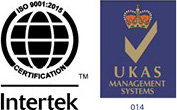Ensuring Safety in Hazardous Environments: Applications of Type C FIBC Bags for Sensitive Materials

Safety is high on the priority list in industries that handle hazardous and sensitive products. Certain materials require specific solutions for storage and transportation to reduce risks, avoid mishaps, and guarantee adherence to industry standards. Companies operating in hazardous settings now depend heavily on Type C Flexible Intermediate Bulk Containers (FIBCs) as a packaging option.
Sensitive materials can be handled securely in Type C FIBC settings, which are known for their potential for explosive hazards and static electricity. Dedicated to providing companies with high-quality Type C FIBC bags that enable them to handle sensitive goods safely, Umasree Texplast is a top supplier of FIBC bags and packaging solutions.
In this blog, we explore the critical role of Type C FIBC bags in hazardous environments and their applications for sensitive materials.
An Introduction To Type C FIBC Bags
Specialized polypropylene bags having conductive threads woven into the fabric are called Type C FIBC bags. These conductive threads enable the safe dissipation of static charge by grounding the bag throughout the filling and emptying procedure. When used properly, these bags minimize the buildup of static electricity, which lowers the possibility of sparks and explosions in situations including dust, fumes, or dangerous gases.
Type C FIBCs are made to be linked to a grounding point when in operation to ensure that static charges caused by the movement of materials are securely neutralized. This makes them a well-liked option for sectors handling delicate or volatile goods that need extra safety measures to prevent mishaps and guarantee employee wellbeing.
Key Features of Type C FIBC Bags
Type C FIBC bags have several features that make them suitable for handling sensitive materials in hazardous environments:
·Conductive Fabric: Conductive threads ensure that any static charge accumulation that occurs during material handling is securely released through grounding.
·Grounding Requirement: Type C FIBCs must always be grounded during use. This eliminates the possibility of electrostatic discharge (ESD) risks and makes sure that static charges are not permitted to accumulate.
·High Load Capacity: Type C bags are perfect for bulk storage and transit since they can hold huge loads, usually between 500 and 2000 kg.
·Flexible and Durable: Strong, long-lasting materials that are flexible enough to handle a wide range of materials, such as powders, granules, and small particles, go into making these bags.
·Compliance with Industry Standards: Type C FIBC bags are a dependable option for sectors that value compliance and safety since they meet stringent safety requirements and industry standards.
Applications of Type C FIBC Bags in Hazardous Environments
Industries that handle hazardous products and need the greatest level of safety frequently utilize Type C FIBC bags. Among the important sectors and uses are the following:
1. Chemical Industry
The chemical industry frequently works with flammable and volatile substances that, if not handled carefully, present serious safety hazards. Chemical powders, granules, and liquids may be transported and stored safely and dependably with Type C FIBC bags. It is ensured that combustible chemicals can be moved without the risk of igniting by static sparks thanks to these bags’ capacity to disperse static energy.
2. Food and Agriculture Industry
Certain products that come into contact with static electricity can be dangerous, even in the food and agricultural industries. For instance, it is known that, in some situations, grain dust, sugar, and flour can catch fire. Such products are transported and stored in Type C FIBC bags, which guarantee their safe handling in situations where flammable dust may be present. Static discharge is reduced when the bags are grounded, safeguarding the goods and the personnel.
3. Mining and Metal Industry
Metal powders, coal dust, and other flammable elements are only a few of the hazardous products that are handled by the mining and metal sectors. Because they make it possible to transport and store these delicate items safely, type C FIBC bags are a vital instrument in these sectors. In enclosed areas like mines or metal processing facilities, static electricity accumulation can cause fires or explosions. This is why Type C bags have a grounding mechanism.
4. Petrochemical Industry
Another area where managing volatile materials is a daily issue is the petrochemical business. Solvents, resins, and powders are examples of petrochemical goods that may release flammable vapors that may catch fire when they come into contact with static electricity. For the safe handling of these products, Type C FIBCs are the best option as they reduce the possibility of explosions and fires during storage and transit.
Ensuring Safety When Using Type C FIBC Bags
In hazardous locations, it is crucial to adhere to certain safety requirements and best practices to optimize the efficiency of Type C FIBC bags:
· When filling and emptying Type C FIBC bags, grounding them correctly is the most important consideration.
· It is crucial to check Type C FIBC bags for any damage that can impair their functionality before utilizing them.
· Tears or holes in the fabric jeopardize the bag’s capacity to disperse static energy safely.
· To ensure safety, any damaged bags should be taken out of service and replaced with new ones.
· It is important to inspect and maintain Type C FIBC bags regularly to ensure they are operating properly.
Conclusion – Time For Safe Packaging & Transportation
Safe and compliant packaging solutions are necessary for the handling, shipping, and storage of delicate commodities under dangerous conditions. Type C FIBC bags provide a dependable and efficient option for companies handling volatile products as they securely disperse static charge and lower the risk of fires or explosions. Businesses may function more confidently knowing that their personnel and supplies are safeguarded when they use Type C FIBC bags.
As a top supplier of Type C FIBC bags made for hazardous settings, Umasree Texplast takes pride in our reputation. We take great care while handling your goods, minimizing hazards and guaranteeing adherence to industry standards thanks to our dedication to safety and quality. To discover more about our selection of FIBC solutions and how we can help your company continue to run safely and effectively, get in touch with us right now.





